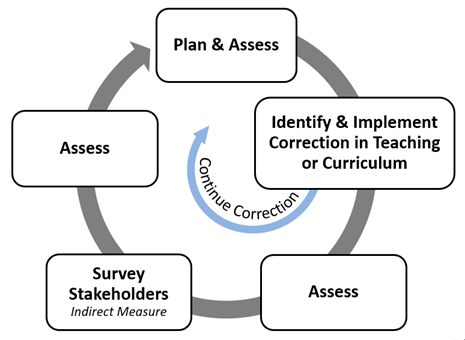Computer Information Systems
The Computer Information Systems (CIS) major is one of the two academic programs offered in the Department of Information Systems and Supply Chain Management.
The Computer Information Systems (CIS) major integrates business, computing technologies, and innovation to create solutions.
Our students learn how to leverage technology as a tool to create competitive advantages, analyze data to better serve customers, build new and exciting systems, facilitate digital disruption, protect information resources, and ensure that technology serves all types of users.
Computer Information System (CIS) majors are generally curious and like to solve puzzles. The analytical and creative ability needed to solve a puzzle also helps to design and create technical business solutions. The Information System (IS) major offers a very important skill set that can be integrated into any industry. Students find higher than average starting salaries upon graduation and consistently high demand for individuals with this degree.
Curriculum & Requirements
Degree Schemes, Requirements & Concentrations
View the scheme below based on the semester entering the CIS degree program. Refer also to the School's Academic Policies.
Computer Information Systems BBA
Computer Information Systems BBA with Concentration in Accounting
Understand the accounting process, reporting and disclosure requirements, examine the U.S. income tax system, and understand the processing of accounting data. Requires ACCT 310, ACCT 311, ACCT 340 and ACCT 350.
Computer Information Systems BBA with Concentration in Cyber Security
Learn the skills to detect cyber/information threats and vulnerabilities, along with the tools and strategies to secure cyberspace. Discover how to protect information systems that support businesses and other enterprises. Requires INFO 391, INFO 393, INFO 395 and INFO 384 or INFO 397.
Computer Information Systems BBA with Concentration in Supply Chain Management
Learn how to organize and optimize all of the information and process flows necessary to bring goods to market. Identify issues in processes and make informed decisions for sourcing, vendor selection, logistical planning and negotiations. Requires SCHM 211, SCHM 340, INFO 384, and INFO 396.
Concentrations are an area of focus in the major discipline. Coursework is fulfilled through required major electives and included in the original 120 credit hour degree requirements. It does not appear on the official transcript.
Advising Worksheets
View the advising worksheet below based on the semester entering the CIS degree program. Refer also to the School's Academic Policies.
Computer Information Systems BBA
Computer Information Systems BBA with Concentration in Accounting
Computer Information Systems BBA with Concentration in Cyber Security
Computer Information Systems BBA with Concentration in Supply Chain Management
Lists of Approved Electives
Purpose & Vision
Mission
The Howard University School of Business Computer Information Systems program focuses on educating students to create and apply business solutions which integrate information systems technologies and analytical knowledge. Students are prepared to produce solutions of the highest quality through focused study of people, processes and technology. The faculty of the department seek to foster an applied learning environment which supports intellectual curiosity through research and debate, advanced study of business issues, and corporate partnering.
Strategic Goals
- Graduates will effectively understand and develop various components of an Information System.
- Graduates will effectively utilize and apply computer information systems across the business functional areas.
- Graduates will be able to understand the rigor, concept, and syntax of at least one programming language as well as being able to design a logical database and translate it into its physical design and implementation.
The HU School of Business follows a comprehensive and multi-faceted assurance of learning process in accordance with AACSB standards. All degree programs are assessed by direct measures on the “Business School Core Competencies” and respective “program learning goals” created by Department faculty. Assessment questions are created by faculty and distributed by the Office of the Associate Dean to seniors at the end of their matriculation. The Office of the Associate Dean then reports the data to the Department faculty, who will review and identify any improvement strategies based on the desired target. After implementation, and alongside any surveys determined necessary to any stakeholders, the Office of the Associate Dean will again send the original assessment questions to seniors at the end of their matriculation. Occurring on a staggered, 5-year cycle, this plan “closes the loop” in the year-to-year continuous improvement but also closes the larger “loop” by assessing across the 4-year matriculation cycle.

